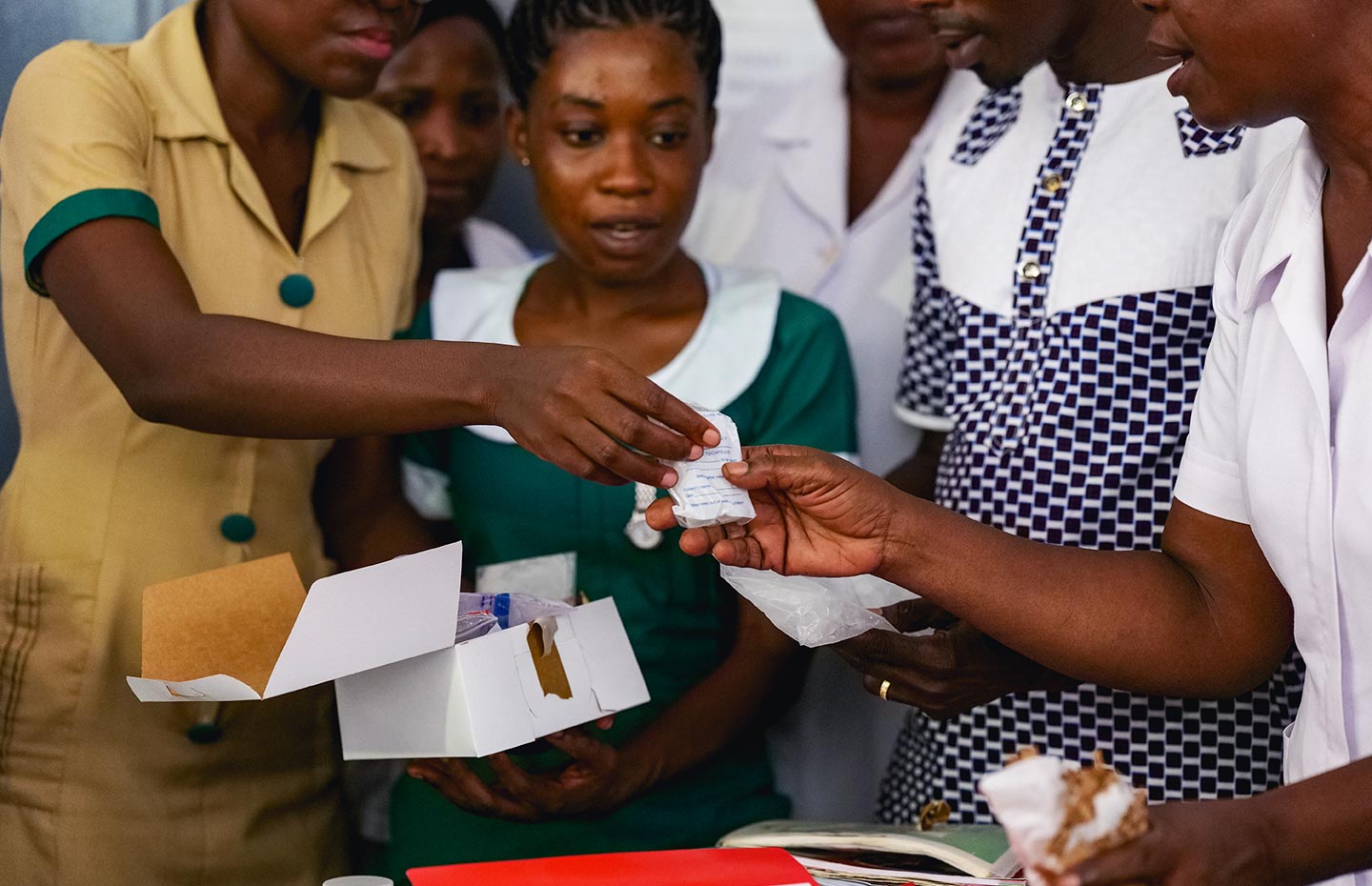Gavi only accepts vaccines donations under exceptional circumstances and requires both the manufacturer and recipient country to comply with a number of conditions.
In-kind donations of other health products, such as injection safety equipment or needles will not be accepted due to the transactional costs of taking a case-by-case approach.
WHAT IS THE PURPOSE OF GAVI'S VACCINE DONATION POLICY?
This policy sets out Gavi's approach towards in-kind donations of vaccines, and other health products used in the delivery of vaccines. The policy does not extend to individual members, partners and constituencies of the Gavi such as WHO, UNICEF or developing country governments.
WHEN IS THE POLICY APPLIED AND HOW DOES IT WORK?
The policy is applied when the Gavi Secretariat is approached by manufacturers of vaccines about possible in-kind donations. As a general principle, Gavi will not accept in-kind donations of vaccines except under the following exceptional circumstances:
- For stockpiles to address disease outbreak emergencies, particularly when another institution cannot accept the donation;
- In a situation where Gavi faces a severe supply shortage due to problems with allocated supply; or
- When, in the absence of the donation, Gavi would have funded the procurement of the vaccine on behalf of a country from the specific manufacturer that is proposing to donate the vaccines.
If, in these three exceptional cases, Gavi does accept in-kind donations of vaccines, a number of conditions must be observed. Most important, the donation must comply with UNICEF/WHO Vaccine Donation Guidelines and recipient countries must continue to comply with their co-financing obligations.
WHEN WAS THE CURRENT POLICY APPROVED AND WHEN WILL IT BE UPDATED?
The vaccine donation policy was approved by the Gavi Board in November 2009 and came into effect at the start of 2010.

